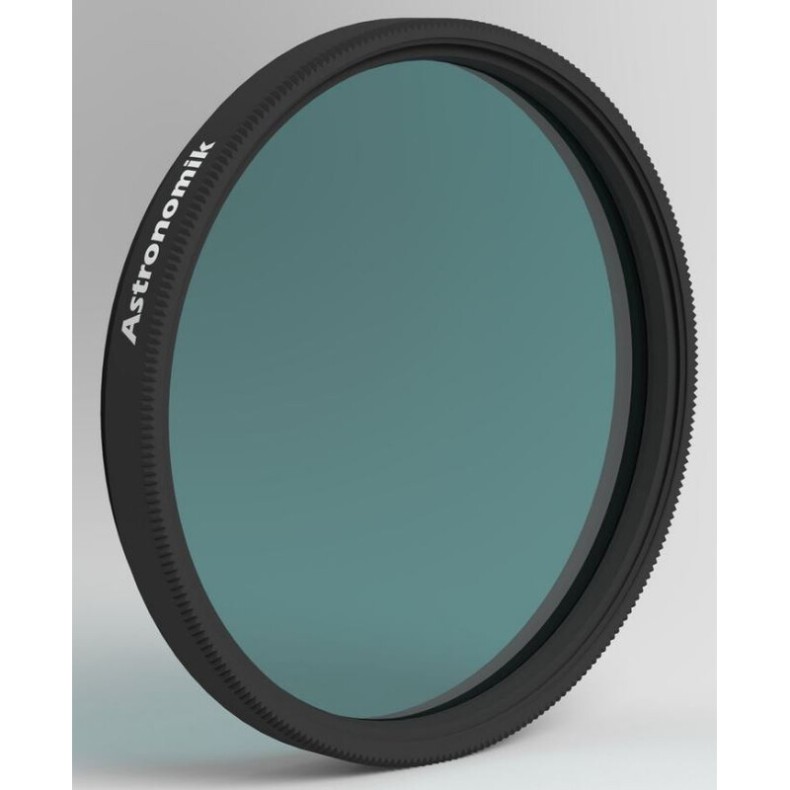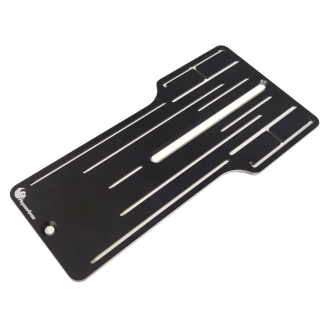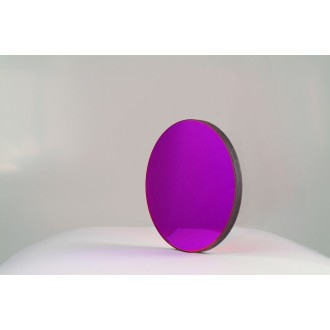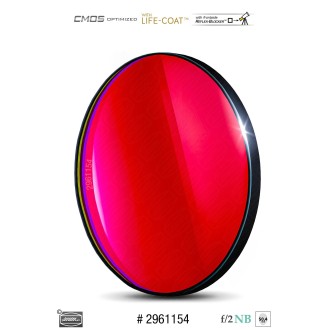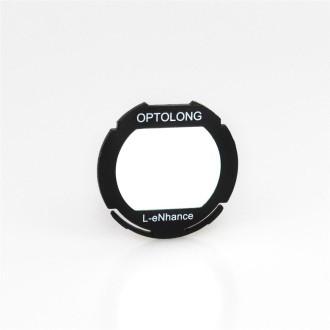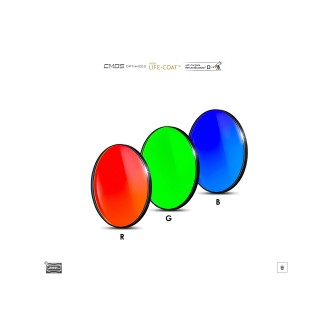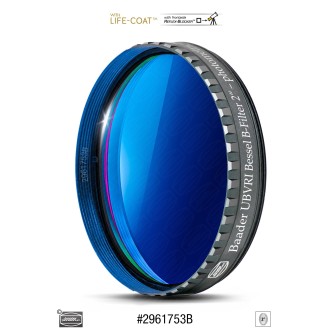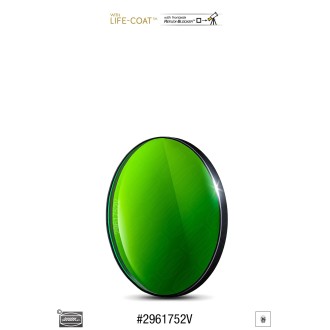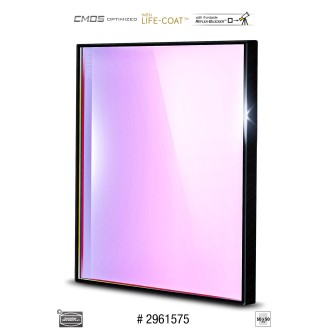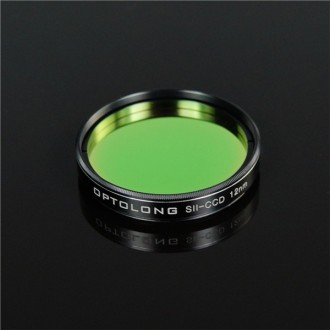FILTER FOR VISUAL AND PHOTOGRAPHIC OBSERVATION TO HIGHLIGHT NEBULAE.
| Carrier | Description | Estimated Delivery | ||
|---|---|---|---|---|
 |
UPS - Resto del mundo | UPS - Rest of the World |
Wednesday, 4 February - Wednesday, 11 February |
|

UPS - Resto del mundo
UPS - Rest of the World
Estimated delivery:
Wednesday, 4 February - Wednesday, 11 February
PRODUCT DESCRIPTION
Scope of application: observation and photography of gaseous and planetary nebulae from city and light polluted areas. Also excellent for comet observation and for better separation of double stars.
Even in small telescopes, a higher contrast between emission nebulae or comets and the sky background is visible. In addition, the filter increases the contrast of nebular objects and attenuates stars. The useful field of application covers a focal ratio of f/3 to f/15.
Difference between the UHC-E and UHC filters: both completely block the emission lines of low and high pressure lamps (mercury, or Hg, and sodium, or Na) and the glare lines of air. The result is an increased contrast between the sky background and the object of observation.
However, the UHC-E filter has a larger half-width than the normal UHC, so the contrast enhancement of the E filter is smaller, but it lets more light through. Therefore, for small telescopes up to 125 mm aperture a UHC-E filter is preferable, while for larger apertures you should use the classic UHC filter.
Tips and other instructions for use
- Perfect for observing comets from the city with telescopes of all apertures
- Experimental for observing clouds of Jupiter
- Better separation of double stars
- As a clip-on filter, it allows photography with DSLR cameras even in light polluted conditions.
The filter is parfocal with all other Astronomik filters. It is not sensitive to moisture or age and is scratch resistant. It is made of fine optical polished backing material with a thickness of one millimeter. The filter is shipped in sturdy packaging.
We help you choose:
the first filter we recommend is the Astronomik CLS. This filter significantly suppresses artificial light pollution and the airglow effect of natural nighttime luminescence. With this filter you will enjoy a dark celestial background that will allow you to make much longer exposures and thus see fainter objects. It is optimized to show objects in their natural colors. Important: the CLS single filter is not equipped with infrared light blocking. Therefore, if you use an astromodified camera you will need the CLS-CCD filter.
A good choice for working in places with a lot of light pollution is the Astronomik UHC filter. The transmission curve of this filter only lets through light from the H-Beta, OIII, H-Alpha and SII lines. This suppression of the sky background is much more pronounced than with the CLS filter, but it only works with gas nebulae! Star clusters and galaxies are virtually filtered out.
If you want to go deeper into astrophotography, we recommend the OIII, H-Alpha and SII emission line filters, available in 6 or 12 nm half-width. With these filters you can get really deep captures of faint objects even in places with extreme light pollution or with the full Moon high in the sky. These lines are so thin that the photos do not come out in color.
Owners of astromodified cameras have the Astronomik OWB filter: OWB stands for "Original White Balance". This filter corrects the shifted color reproduction of astromodified cameras so that they can be reused for conventional photography without the need to retouch each photo on the computer.
Comments from our experts:
Tip: Still looking for the right filter? Suitable recommendations from our experts in the magazine article We guarantee you will see more with these eyepiece filters
SPECIFICATIONS
Capacity
Connection (telescope side):2"
Bonus of optical elements: Multiple
Support material: Aluminum
frame:2"
bandpass (nm):480-505 & 645-700
Transmission:97
General
Series: UHC
Type: Filter
Construction Type: UHC Filters
Applications
For visual use: yes
Suitable for photographic purposes: yes
Against light pollution: yes

